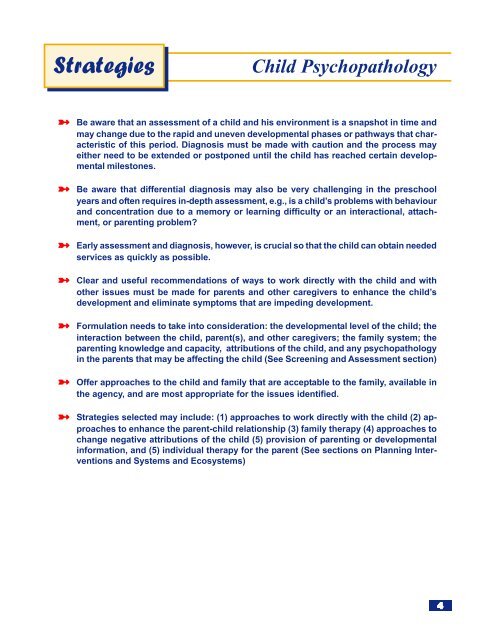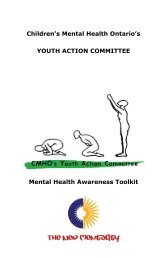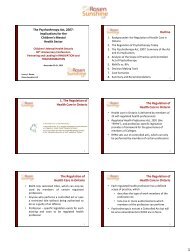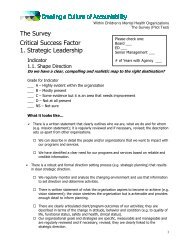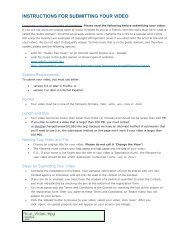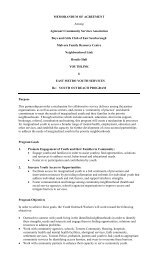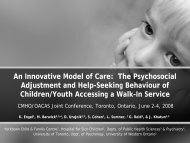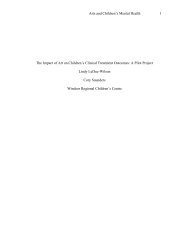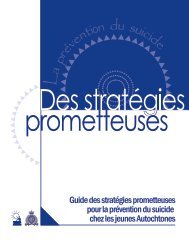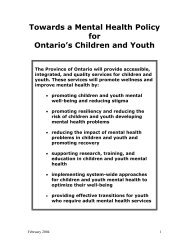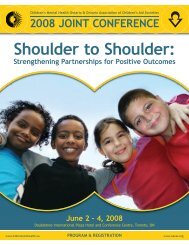Early Childhood Mental Health Treatment: Training Reference Guide
Early Childhood Mental Health Treatment: Training Reference Guide
Early Childhood Mental Health Treatment: Training Reference Guide
You also want an ePaper? Increase the reach of your titles
YUMPU automatically turns print PDFs into web optimized ePapers that Google loves.
Strategies<br />
Child Psychopathology<br />
Be aware that an assessment of a child and his environment is a snapshot in time and<br />
may change due to the rapid and uneven developmental phases or pathways that characteristic<br />
of this period. Diagnosis must be made with caution and the process may<br />
either need to be extended or postponed until the child has reached certain developmental<br />
milestones.<br />
Be aware that differential diagnosis may also be very challenging in the preschool<br />
years and often requires in-depth assessment, e.g., is a child’s problems with behaviour<br />
and concentration due to a memory or learning difficulty or an interactional, attachment,<br />
or parenting problem<br />
<strong>Early</strong> assessment and diagnosis, however, is crucial so that the child can obtain needed<br />
services as quickly as possible.<br />
Clear and useful recommendations of ways to work directly with the child and with<br />
other issues must be made for parents and other caregivers to enhance the child’s<br />
development and eliminate symptoms that are impeding development.<br />
Formulation needs to take into consideration: the developmental level of the child; the<br />
interaction between the child, parent(s), and other caregivers; the family system; the<br />
parenting knowledge and capacity, attributions of the child, and any psychopathology<br />
in the parents that may be affecting the child (See Screening and Assessment section)<br />
Offer approaches to the child and family that are acceptable to the family, available in<br />
the agency, and are most appropriate for the issues identified.<br />
Strategies selected may include: (1) approaches to work directly with the child (2) approaches<br />
to enhance the parent-child relationship (3) family therapy (4) approaches to<br />
change negative attributions of the child (5) provision of parenting or developmental<br />
information, and (5) individual therapy for the parent (See sections on Planning Interventions<br />
and Systems and Ecosystems)<br />
4


